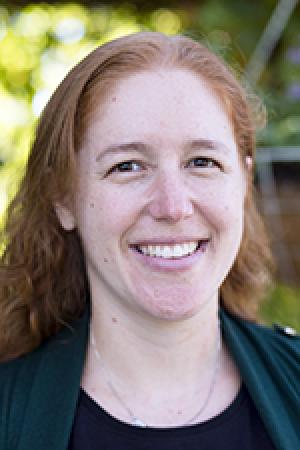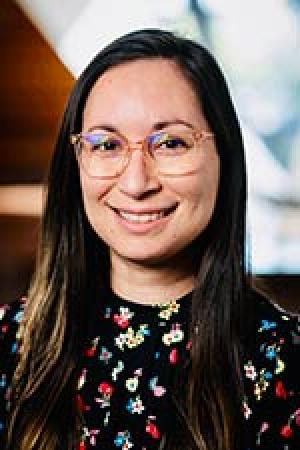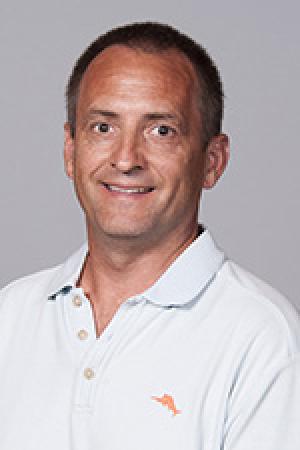Start your journey
Gain in-demand skills and competencies with a master’s in mathematics education
Enhance your professional expertise, elevate your teaching career and strengthen your leadership skills in the field of math education art education.
The professional studies master’s in mathematics education is a graduate-level program, tailored to experienced mathart teachers looking to enhance their careers and leadership skills through an advanced degree.
We offer a flexible schedule featuring a mix of evening and summer courses all designed to meet the needs of working professionals.
Earn your degree quickly, in one year full-time or two years part-time.
Career outlook
Graduates of the professional studies master’s in mathematics education can anticipate:
- Higher-level teaching opportunities
- Roles in school administration or as a mentor to other educators
- A competitive advantage over teachers without master’s when applying for jobs
How to apply
Admission deadlines
Applications are accepted for three different start times throughout the year:
- December 15 (Spring start)
- April 30 (Summer start)
- July 31 (Fall start)
Admission requirements
Requirements:
- Bachelors’s degree
- 2.80 GPA
- Licensed Tier 3 teacher
Requirement Application Documents
- Unofficial transcripts. Upload your transcripts into the application system; please do not mail your transcripts. Official transcripts are required only after you are admitted.
- Resume. Tailor your resume to focus on relevant academic and work experience.
- Personal statement. Describe your career goals and rationale for pursuing your MEd Limit: 1 page.
Transfer credits
Maximum transfer credits: 10
Credits may have been taken at UMN, or at another institution. Credits must be at the graduate level and must be approved by a faculty adviser.
- Contact the academic adviser (for contact info, see below) to arrange to work with a faculty adviser to have your courses approved
- After the faculty adviser approves your transfer courses, fill out the Academic Policy Petition.
International applicants
International applicants may also need:
- An English translation of your transcripts, if the transcript is not in English.
- A course by course evaluation may be required.
- TOEFL scores. Official TOEFL scores are required. You may qualify for an exception if you have completed 16 semester or 24 quarter credits within the past 24 months in residence as a full-time student at an accredited institution of higher learning in the United States. Please see the University of Minnesota TOEFL score requirements and submission guidelines from the Graduate School. Early application is advised to ensure timely admission.
- International students with F-1 visas may take no more than the equivalent of one completely online education class (or 3 credits per semester) and count it towards their full-time course requirement. Full-time enrollment for graduate students is 6 credits. If you are enrolled in an online program and studying in your home country, you do not need full-time enrollment status.
Tuition
Visit the College of Education and Human Development's 2025-2026 professional program costs page for information on the master's in mathematics education (MEd) for teaching license program costs.
Visit OneStop for the most up-to-date tuition information and to understand the full cost of attendance.
Funding
CEHD Fellowships, scholarships, assistantships, and grants for graduate students
As a graduate student in CEHD, you may be eligible for fellowships, grants, and scholarships from the University of Minnesota, from our college, and from your academic department. Get more information on CEHD funding opportunities. More information about University-wide fellowships, grants, and scholarships on the CEHD website.
Questions about funding:
University Funding Opportunities:
612.625.7579 | gsfellow@umn.edu
CEHD Funding Opportunities:
Academic Adviser: Monarch Justice
Financial aid
Financial aid for your graduate program works a little differently than financial aid at the undergraduate level. It’s important to know the differences and explore your options.
Check out the One Stop website for more information on financial aid eligibility, required steps, and timelines. If you have questions, you should contact One Stop Student Services at 612.624.1111 or via email at onestop@umn.edu
Request information
What our alumni say
Quote from Sabrina Arredondo, MEd '19
"I’ve really enjoyed getting to hear perspectives of math teachers from around the state and in all grade levels. The conversation and collaboration has been one of the best parts about coming to the University of Minnesota."
Coursework
The professional studies master’s in mathematics education is a graduate-level program, tailored to experienced math teachers looking to enhance their careers and leadership skills through an advanced degree.
Complete your coursework in just one year full-time or two years part-time.
Program requirements
This program requires a minimum of 30 semester credits of graduate-level coursework distributed across three areas:
Coursework focuses on three areas:
- Core academic program in education (6 credits)
- Courses specific to the area of math education, (14 credits)
- Electives designed to align with your interests (10 credits)
Visit the graduate program catalog (requirements tab > mathematics education subplan) for more information on coursework requirements for the professional studies master's in mathematics education.
Sample course schedule
The Professional studies master’s in mathematics education at the University of Minnesota requires 30 credits of graduate-level coursework
Core coursework (6 credits):
CI 5155 - Contemporary Approaches to Curriculum: Instruction and Assessment (3 credits)
CI 5116 - Action Research in Educational Settings (3 credits)
Math education requirements (14 credits):
MTHE 5314 - Teaching and Learning Mathematics (3 credits)
MTHE 5366 - Technology-Assisted Mathematics Instruction (3 credits)
MTHE 5993 - Directed Studies in Mathematics Education (2 credits)
Math education electives (6 credits):
MTHE 5171 - Teaching Problem Solving (3 credits)
MTHE 5172 - Teaching Probability and Statistics (3 credits)
Faculty
See the award-winning faculty with practical and research experience teaching in this area.






